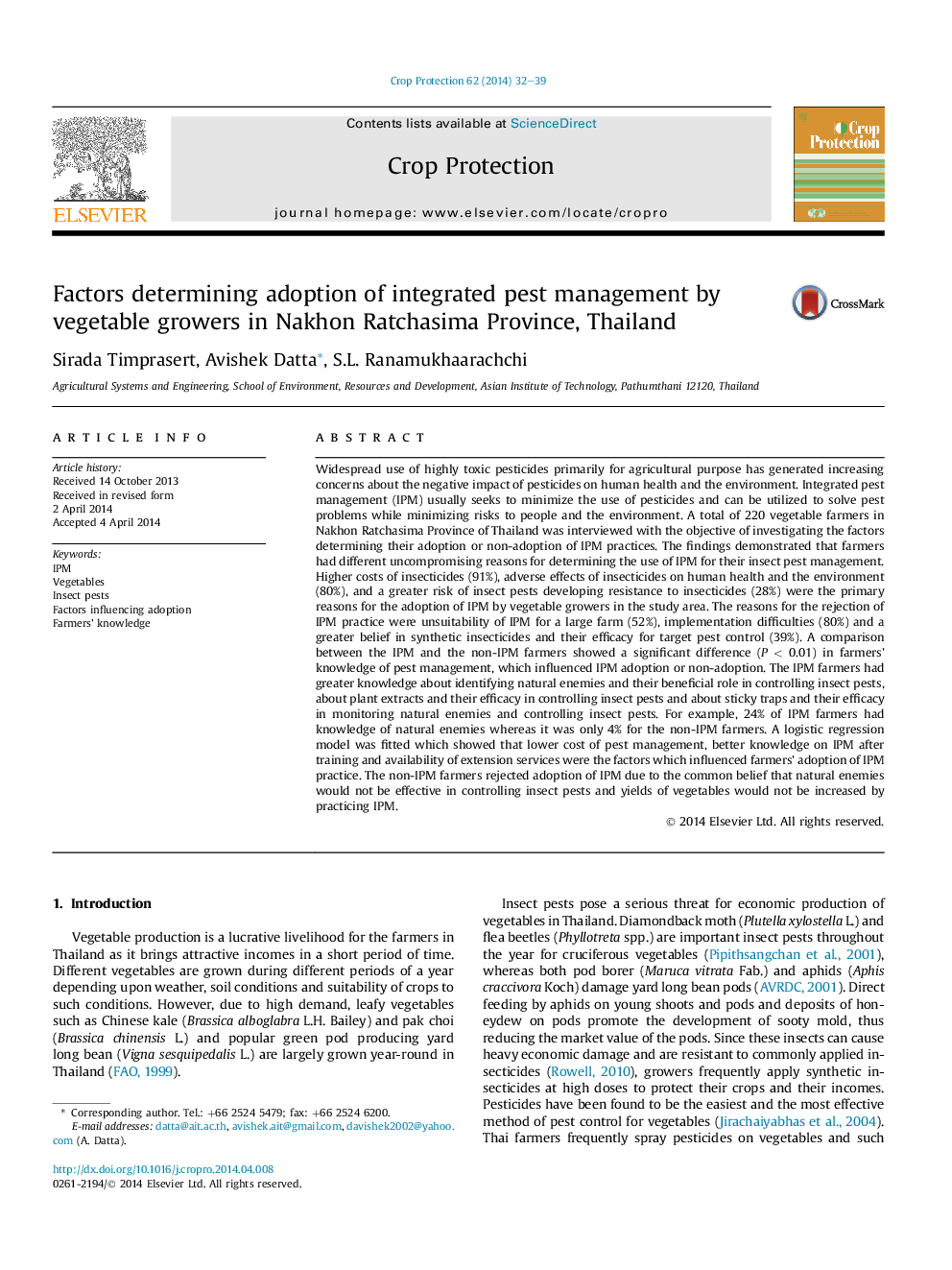| کد مقاله | کد نشریه | سال انتشار | مقاله انگلیسی | نسخه تمام متن |
|---|---|---|---|---|
| 4505881 | 1624325 | 2014 | 8 صفحه PDF | دانلود رایگان |
• Vegetable farmers in Nakhon Ratchasima Province of Thailand were interviewed.
• The objective was to investigate the factors determining their adoption of IPM.
• IPM was adopted due to higher insecticide cost, their effects on humans and environment.
• IPM was rejected due to unsuitability on large farms and implementation difficulties.
• Lower cost, IPM knowledge, extension availability influenced adoption of IPM.
Widespread use of highly toxic pesticides primarily for agricultural purpose has generated increasing concerns about the negative impact of pesticides on human health and the environment. Integrated pest management (IPM) usually seeks to minimize the use of pesticides and can be utilized to solve pest problems while minimizing risks to people and the environment. A total of 220 vegetable farmers in Nakhon Ratchasima Province of Thailand was interviewed with the objective of investigating the factors determining their adoption or non-adoption of IPM practices. The findings demonstrated that farmers had different uncompromising reasons for determining the use of IPM for their insect pest management. Higher costs of insecticides (91%), adverse effects of insecticides on human health and the environment (80%), and a greater risk of insect pests developing resistance to insecticides (28%) were the primary reasons for the adoption of IPM by vegetable growers in the study area. The reasons for the rejection of IPM practice were unsuitability of IPM for a large farm (52%), implementation difficulties (80%) and a greater belief in synthetic insecticides and their efficacy for target pest control (39%). A comparison between the IPM and the non-IPM farmers showed a significant difference (P < 0.01) in farmers' knowledge of pest management, which influenced IPM adoption or non-adoption. The IPM farmers had greater knowledge about identifying natural enemies and their beneficial role in controlling insect pests, about plant extracts and their efficacy in controlling insect pests and about sticky traps and their efficacy in monitoring natural enemies and controlling insect pests. For example, 24% of IPM farmers had knowledge of natural enemies whereas it was only 4% for the non-IPM farmers. A logistic regression model was fitted which showed that lower cost of pest management, better knowledge on IPM after training and availability of extension services were the factors which influenced farmers' adoption of IPM practice. The non-IPM farmers rejected adoption of IPM due to the common belief that natural enemies would not be effective in controlling insect pests and yields of vegetables would not be increased by practicing IPM.
Journal: Crop Protection - Volume 62, August 2014, Pages 32–39
